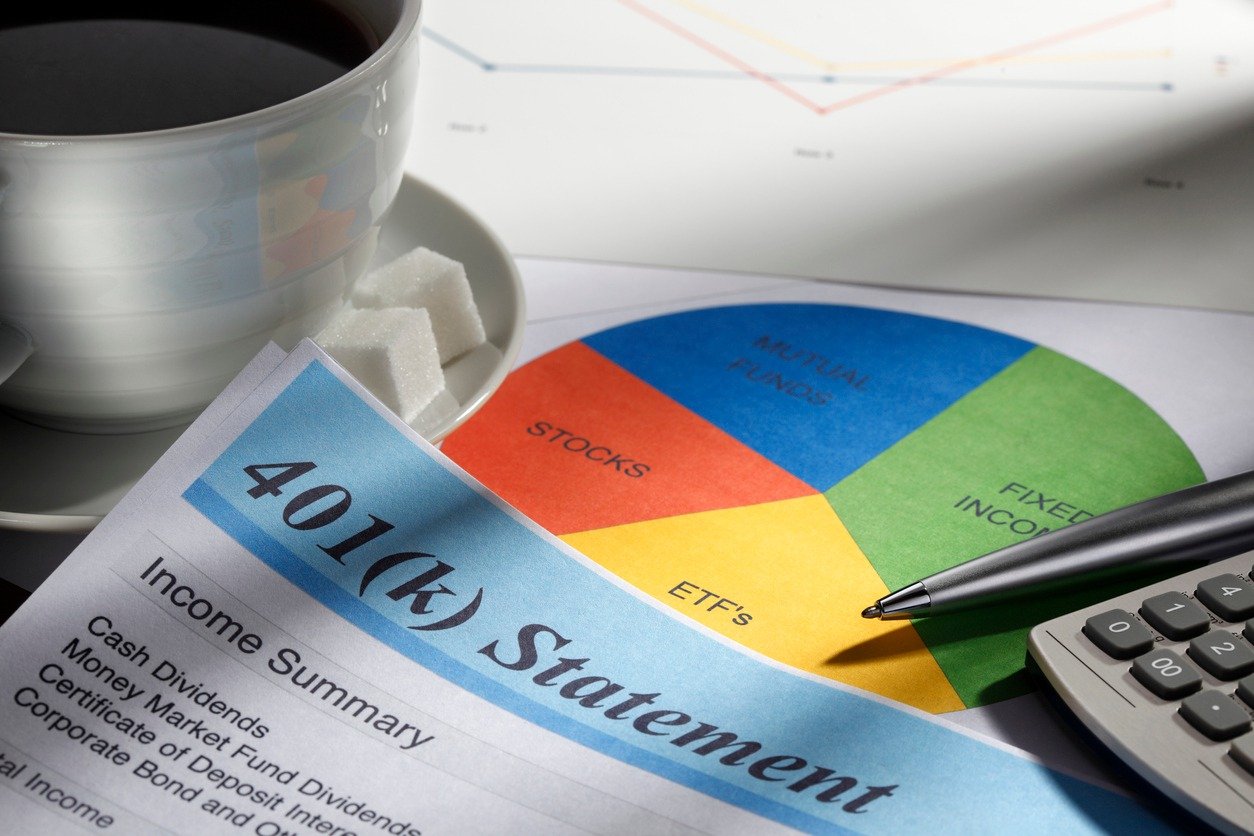Retirement feels closer when you hit your 40s. And by this time, you need to have a retirement savings plan for your future financial well-being. But don't need to worry if you haven't started saving in your 40s. You still have time to build your nest egg. Although you may have much catching up to do, you can still make impactful decisions to see you through a great retirement.
Furthermore, if you're a risk-averse person, you want saving strategies that don't expose your money to unpredictability. Let's take a close look at the best approaches for risk-averse individuals who want to start saving in their 40s.

Start with the 401(k) plan
If your employer offers 401(k) plans, and you're eligible, you should take advantage of them. But, of course, you want to contribute to the maximum allowable amount in the 401(k). Any matching contributions from your employer will help grow your retirement savings even more. Additionally, a 401(k) plan minimizes your tax burden while you build your nest egg. Since you're late on your retirement savings, you want to utilize catch-up contributions to your IRA and 401(k) to boost your savings.
Consider government securities
You can consider bonds issued by the US government to increase your retirement savings. Government securities are risk-free and offer a steady return rate. While some people are concerned about the low returns of government securities, they don't realize the low risk and steady returns are beneficial. It's like you're lending money to the government, which promises to pay back after a specified period.
There are various types of government securities to consider for your retirement savings. Treasury bills and notes are short and medium-term investments that mature between two to ten years. You'll earn interest on your investments until maturity. On the other hand, treasury bonds are long-term government securities ideal for your retirement savings. The U.S. government issues 10-to-30-year treasury bonds. Moreover, they have the most prolonged maturity period and pay fixed interest every six months.
Municipal bonds
Municipal bonds are exempt from federal taxes and are relatively low-risk investments. As a result, they are an excellent way to create a reliable income stream (interest payments) while preserving capital (you get your money back at the end).
The best part about municipal bonds is that your interest payments aren't taxed at the federal level. And although some states impose taxes on interest payments from municipal bonds, others don't.
Strive to be debt-free
You don't want to enter your retirement with a bunch of debts because they will eat into your retirement savings. If you have a home loan, consider paying it off before you hit 45 or 50. Additionally, pay off your credit card balance in full to avoid interest accumulation. Do not get into a huge debt that you can't settle over a short period.
Another way to stay out of debt is to have an emergency fund to help you cope with unforeseen changes like shock bills, job loss, and illnesses. You want to assess your total income to identify how much goes into your emergency funds account. However, don't get carried away by figures quoted by experts — some say that your emergency fund should cater for three to six years of expenses. But remember, you're just starting to build your emergency fund and retirement savings, and it's better to have something in your account, however, keep in mind, you shouldn't spend any money on your safety net unless you need it. This is how you'll minimize debt and grow your nest egg starting in your 40s.
Evaluate options for your retirement savings when switching jobs
At 40, you're more likely to advance in your career due to your many years of experience. But when changing jobs, you want to evaluate options for your retirement savings. Some of the options to consider include:
- Rolling assets to an IRA
- Moving assets to your new employer's QRP
- Leaving assets in your former employer's QRP
- Cashing out or taking a lump-sum distribution
Each option has benefits and downsides, so ensure you evaluate well before deciding. Also, choose an option that aligns with your retirement savings strategy.
Consider working longer
The longer you work, the more income you'll make. Consequently, you'll have enough money to cover your expenses while building your retirement fund.
Diversify your investments to generate more income. You might want to consider side hustles to create more income. Work hard and longer now so that you'll rest when you retire!
High-yield savings accounts
This is more to savings than investing for your retirement. Still, it's a low-risk strategy that offers a modest return on your money — ideal for the risk-averse individual. Shop around and check out rate tables to identify high-yielding options and maximize your retirement savings. With a savings account, you don't lose any money. Moreover, many government accounts are secured, so you won't lose your savings when the institution fails. Savings accounts give you slow but steady interest on your savings. Also, a savings account is a liquid asset. You do not have to sell investments or make complicated moves to access your cash.
Furthermore, savings accounts have a low start-up requirement. You can open one for as little as $1.
Money market accounts
A money market account feels much like a savings account and offers the same benefits, including interest payments. However, you may need to pay a slightly higher minimum deposit for a money market account than a savings account. Money market accounts have higher rates compared to savings accounts. Furthermore, you'll have the flexibility to access and spend your money. You want to shop around for the best rates to maximize your returns while building your retirement fund.
Conclusion
It's neither early nor late to start saving for your retirement. Some start building their nest egg in their early 20s, while others do it in their 50s. If you're in your 40s and are risk-averse, you still have time to build your retirement savings. There are various low-risk strategies to help you build your retirement fund, including government securities, high-yield savings accounts, and municipal bonds. We can help you manage your money instantly and efficiently using various accounts. Contact us to learn more about our accounts and services!




SHARE